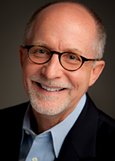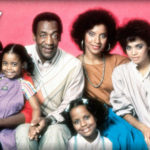What’s the second-most-important lesson you’ve ever learned?
 Marv KnoxThe most-important lesson doesn’t count. It “counts,” all right. But I’m guessing almost every follower of Jesus could/would/should provide the same answer: “For God so loved the world that he gave his one and only Son, that whoever believes in him shall not perish but have eternal life.”
Marv KnoxThe most-important lesson doesn’t count. It “counts,” all right. But I’m guessing almost every follower of Jesus could/would/should provide the same answer: “For God so loved the world that he gave his one and only Son, that whoever believes in him shall not perish but have eternal life.”
Hard to top God’s love, Jesus’ sacrifice and eternal life.
So, what’s your second-most-important lesson? What have you learned that turned you upside-down? That altered how you see yourself and the world?
Then and there
I’ll never forget where I was the moment I learned my second-most-important lesson. Of course, by then, I had learned lessons that stacked up behind the wisdom of John 3:16: My family loved me. Education is vital. If you always tell the truth, you don’t have to remember what you’ve said. Let pizza cool before you take the first bite.
But on a morning in 1976, I learned my second-most-important lesson. My life never has been the same.
I sat in Julian Bridges’ introduction to sociology class in Abilene Hall on the campus of Hardin-Simmons University. Dr. Bridges, a former missionary to Mexico, talked about people from cultures far different than the West Texas farm-and-ranching communities where I grew up. He spoke of people whose lives differed radically from the folks who comprised the social structure of my known universe.
In that lecture, I learned my second-most-important lesson: “You’re not as smart as you think you are.”
Sign up for our weekly edition and get all our headlines in your inbox on Thursdays
I should’ve known …
Of course, I should’ve known that by then. And I did, in small ways. I had made mistakes. I knew people who were smarter, more talented and more creative than I.
But despite the wise presence of role models and teachers, I still thought my white working/middle-class Texas Panhandle conservative Baptist Christian worldview was normative for everybody. I believed everyone everywhere who didn’t agree with my perspective and values was just plain wrong. After all, there was only one standard for truth, and I already knew it.
Then Dr. Bridges burst my narrow, egotistical bubble. I realized if I had been born in a mountain village in Mexico, or a city in China, or a kibbutz in Israel, I would see the world much differently. And those ways of seeing and responding would be based as much on both fact and fortune as my white working/middle-class Texas Panhandle conservative Baptist Christian worldview.
“You’re not as smart as you think you are.”
Just telling you about it makes me feel embarrassed. I should’ve known all that, but I didn’t. I’d lived 20 years thinking my personal experience was the sum and substance of what is normative. For. The. Whole. World. Sheesh!
A whole new world
That lesson opened my world to a range of thinking and understanding I’d never dreamed possible. Call it empathy.
From there, I realized my world would be different if I had been born female instead of male. If my mama and daddy had been Muslims instead of Baptists. If my hometown had been near a Vietnamese rice paddy or a Mongolian goat pen or a Parisian café, I’d be different than the boy who grew up surrounded by wheat fields, just north of feed lots.
Thank God, I learned I’m not as smart as I think I am.
That revelation has freed me to learn from people who live far away. Children in Guatemalan orphanages, foster parents in Chinese megalopolises and poor pastors in Soviet-era Russian apartment complexes have taught lessons foreign—in miles, but also in intellect—to that kid in an HSU classroom.
Realizing I’m not as smart as I am has freed me to learn from people right beside me. I’m blessed to have learned from women one chromosome and decades away from me. I’ve learned from friends whose primary difference is the color of their skin and friends whose defining difference is their sexual orientation. I’ve learned from folks whose theology, politics and sports affinity are 180 degrees from mine.
If Dr. Bridges had allowed me to go on assuming I am as smart as I thought I was, my life would be infinitely poorer. The range of my friendships and loves would be unimaginably smaller. The circumference of my life would be as small and uneven and hard as a shriveled raisin.
Of course, I have to keep learning this lesson, over and over and over. The loud voices of arrogance and insecurity and old-fashioned sinfulness keep trying to convince me I’m as smart as I think I am. So, thank God, I keep making mistakes. Although humiliating, they remind me of my finitude.
Paradoxically, that frees me to infinite opportunity and boundless joy.
What about you?
Well, that’s my second-most-important lesson. What’s yours?
You can tell me by clicking here. Keep it short and to the point, and if I receive enough, I’ll share them with you.
We can learn from each other.
Follow Marv on Twitter: @marvknoxbs















We seek to connect God’s story and God’s people around the world. To learn more about God’s story, click here.
Send comments and feedback to Eric Black, our editor. For comments to be published, please specify “letter to the editor.” Maximum length for publication is 300 words.